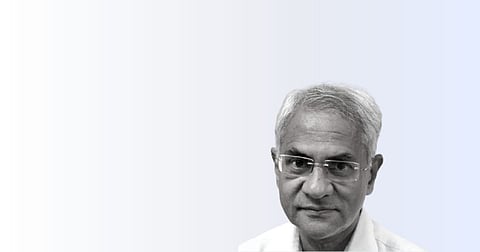

Former Union Health Secretary, Keshav Desiraju, passed away on September 5th, 2021. The grandson of former President of India Sarvepalli Radhakrishnan furthered India's health system, specifically mental health and community healthcare. In light of his demise, PADMA BHATE DEOSTHALI writes about the late Desiraju's important contribution to coming up with the standard operating procedures for survivors of sexual violence.
——-
THE passing away of Keshav Sir is devastating. A lot has already been written about him but I would like to highlight one of his key contributions which has not received much attention:
his leadership in the issuance of the national directive for health systems laying down standard operating procedures for the care, treatment and rehabilitation of survivors of sexual violence, applicable to all public and private health facilities across the country.
I had the opportunity to work with him closely as a member of the committee set up in 2013 by the Union Ministry of Health and Family Welfare (MoHFW) for developing guidelines and protocols for responding to rape. The committee completed its work between March and December 2013 and the guidelines were released at a national workshop organised by the MoHFW and the World Health Organisation (WHO) India in March 2014.
It was his sharp mind and astute approach that ensured that these guidelines and protocols were released even after his sudden transfer in February 2014. I have no doubt that these were possible only because he was at the helm of affairs.
Many had been fighting against medieval biases against rape for many years. Despite legal amendments and scientific evidence, the bias in statute-books and practice continued. It took the Nirbhaya incident and the Justice Verma Committee for the MoHFW to look into this issue.
The manner in which he created a democratic space was noteworthy. He engaged with the medical profession firmly, and brought the various ministries (Ministry of Women and Child Development, Ministry of Home Affairs, Ministry of Social Justice and Empowerment, and the Ministry of Law and Justice) together on board.
He ensured that all changes were backed with evidence, and even sought legal opinion on contentious issues and put them on record. The detailed paper work and processes that he put in place was admirable.
I was totally in awe of him, and he knew it! That is probably the reason why he called me after the first meeting of the committee and told me that he can get the team to move on to work only if I follow up rigorously, question him in case of delay, and, if required write the same 'stinkers' that I had been writing to the Directorate General of Health Services and its Secretary in the past for inaction!!
I had quite an exhilarating experience of moving through the corridors of power and working with officers who ended up cooperating with me, thanks to Keshav Sir. As they would often say "Madam, Sir ne isko fast track kiya hai…." (Madam, Sir has fast tracked this matter).
For those who are not fully acquainted with the guidelines and protocols, they translate the right to healthcare for all survivors of sexual violence. The following are their key elements:
His visit to the Dilaasa Crisis Intervention department in 2014 was inspiring for the entire hospital staff. The Dilasa centre was set up as an integrated model for responding to gender-based violence, including domestic violence, child sexual abuse and sexual violence.
The visit was an indication of the recognition of the hospital staff's efforts since 2000. After carefully examining the functioning, relevance and effectiveness of its functioning, he immediately recommended the upscaling of the department as part of the National Health Mission.
I will miss him, and will always cherish all my interactions with him.
(Dr Padma Bhate Deosthali is a former coordinator at the Centre for Enquiry into Health and Allied Themes. The views expressed are personal)